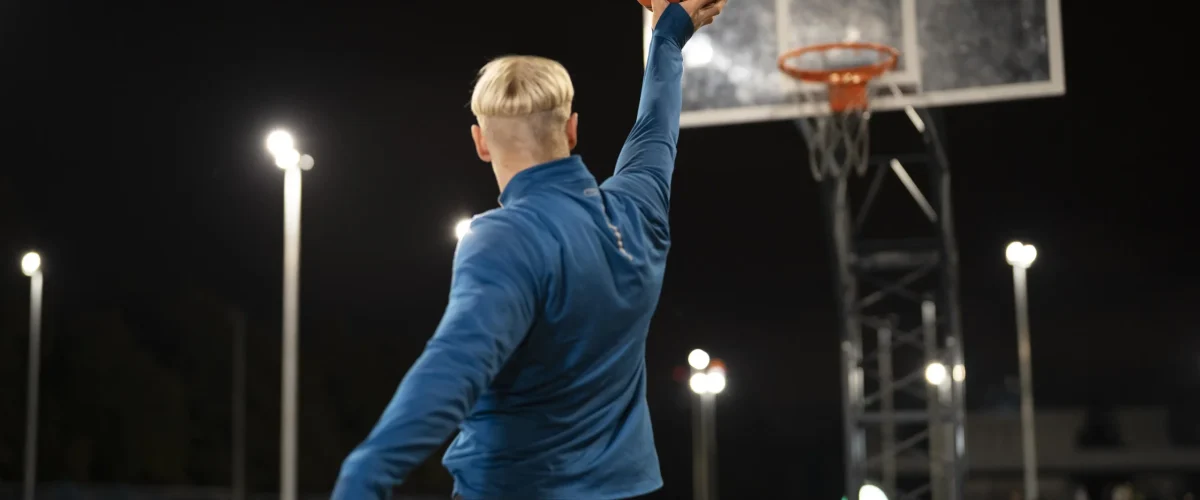How Athletes Stay Motivated After Losing

Introduce with a real-life story
Once upon a time, in a small town where every street corner seemed to hold whispers of dreams and aspirations, there lived an athlete named Tommy. Tommy was a devoted runner, pouring countless hours into training as he chased goals that seemed just out of reach. Each day began hopefully, filled with the promise of improvement and the possibility of triumph. But in spite of his unwavering commitment, he suffered devastating losses in race after race. Every loss felt like a chapter in a tragic story, each one heavier than the last, as the shadow of disappointment loomed larger with every completed race. Friends and family offered fleeting words of encouragement. phrases like “You’ll get them next time” or “Just keep trying,” but their well-intentioned words often faded in the face of persistent mocking and doubt from others. This made it difficult for Tommy to see the light amidst the fog that dulled his spirit.
Days turned into weeks, and with every passing moment, Tommy found it increasingly challenging to muster the enthusiasm to lace up his shoes for another round of training. The early morning rituals, once a source of joy, now felt like a daunting task. His love for the sport began to fade, as whispers of “I’m not good enough” echoed in his mind. Each time he approached the track, the burden of past defeats lingered, casting a shadow over even his most determined efforts.
Just when it seemed that hope had finally been dimmed, a spark ignited within Tommy. He decided it was time to shift his focus not solely on victories but on the invaluable lessons embedded within every loss. Instead of viewing defeat as a personal failure, Tommy began to see these moments as stepping stones, essential for growth. He turned his frustrations into fuel, redefining what it meant to be an athlete. It was no longer about merely winning; it became about resilience, learning, and empowerment.
After a season of relentless perseverance, filled with sweaty workouts and moments of doubt conquered, Tommy found himself at the starting line of an important tournament. A mix of nerves and excitement coursed through him, but this time it felt different. The fear of losing was still there, but beneath it lay a newfound determination. With each breath, he remembered the sacrifices made, the hard work put in, and the growth experienced through setbacks. As Tommy crossed that finish line, he burst through the fog of self-doubt. Triumph surged through his veins, and the victory tasted sweeter than any before. In retrospect, Tommy realized losing had not been the end but, rather, a necessary chapter on the road to success.

Why It’s Important to Stay Mentally Strong After a Loss
“Losing is not the opposite of winning; it’s part of it,” he thought, embracing this newfound revelation that echoed throughout his athletic journey. This simple yet profound insight became a cornerstone for Tommy’s approach to both competition and life.
However, despite understanding the importance of resilience intellectually, many athletes struggle to remain motivated after facing loss. It often leads to spirals of self-doubt feelings compounded by questioning one’s skills. It’s easy to look around and feel like everyone else is surging ahead while you’re stuck, watching from the sidelines. That cruel inner dialogue may whisper, “I’m not good enough,” gently eroding the very foundation of joy that once accompanied the sport.
As losses mount, the love for the game becomes a fading dream, increasingly challenging to maintain. Feelings of isolation often creep in, leading athletes to believe that nobody else can truly understand the painful journey of setbacks and disappointments. This emotional isolation is exacerbated when athletes start comparing themselves to others, leading to a distorted view of their worth. They might perceive fellow competitors celebrating victories, leaving them to feel abandoned in despair.
When we fail repeatedly, it’s all too easy to forget why we started in the first place. Each loss can threaten to shatter not just our confidence but also our passion and drive, casting long shadows over every training session. This emotional upheaval can have disastrous results. If the mindset following a loss is not carefully managed, athletes may face profound consequences.
With disheartened spirits, some may quit prematurely, abandoning dreams once held dear. Others may fall into the trap of blaming teammates or unforeseen circumstances instead of reflecting on their own contributions to the struggle. This poisonous environment can cause divisions within groups, smothering team spirit and pushing gifted people to the periphery. Some athletes, attempting to compensate for perceived shortcomings, might experience burnout from overtraining, which only serves to further diminish their potential.
It’s vital to remember the words of a legendary athlete who once said, “Sometimes, you have to take a step back to move forward.” This statement is a powerful reminder that even the greatest champions face moments when quitting seems like the only option. It emphasizes the importance of navigating through the challenges on the path to success.

How can athletes stay motivated after experiencing loss?
The journey back to passion and purpose starts with accepting loss emotionally and mentally. Allowing oneself to feel hurt initially is a crucial part of the process. However, just as Tommy learned, it’s vital to release that pain over time to make room for healing and growth.
Another essential step is maintaining a routine, even when motivation dips. Training without the pressure of performance can help build discipline and keep the connection to the sport alive. Making it a habit even when the heart feels heavy fosters resilience and prepares the athlete for the brighter days ahead.
Honest conversations with coaches or teammates can serve as vital lifelines during these challenging times. Sharing struggles can lighten the burden and foster connections, strengthening bonds in the process. Authentic communication allows athletes to express vulnerabilities while gaining insights and perspectives that can reinvigorate their passion.
Setting new, smaller goals can also be transformative. Breaking down larger aspirations into bite-sized, achievable targets can encourage gradual progress, shifting focus from overwhelming long-term goals to incremental success.
The Power of Visualization and Inspiration
Maintaining motivation can be greatly aided by visualization. Athletes can picture success based on past failures, reframing how they perceive losses. By transforming setbacks into opportunities for growth, they can alter their future trajectories. Furthermore, drawing inspiration from the comeback stories of other athletes can ignite the fire within. Observing the resilience exhibited by others can serve as a guiding star amid dark times.
Surrounding oneself with positivity is another effective strategy. This may include uplifting friends, motivational content, or a supportive community. Creating a nurturing environment fosters growth and encourages perseverance. In those moments of self-doubt, surrounding oneself with reminders of possibilities and encouragement can revitalize one’s spirit.
Lastly, it’s crucial to celebrate effort over outcome. Recognizing the hard work put into every training session or race, regardless of the final result, reinforces the principle that resilience is a victory in itself. “When you nurture the process rather than the result, the results tend to take care of themselves.” This insight can empower athletes to find joy again, even when the scoreboard doesn’t reflect their efforts.

Fixed vs. Growth Mindset: A Turning Point
Changing the way we think about losing is pivotal for growth. We can primarily adopt one of two mindsets: a fixed mindset or a growth mindset. A fixed mindset might lead one to conclude, “I lost because I’m not good enough,” causing them to retreat into their shell, while a growth mindset fosters the belief that “I lost because I needed to learn something.” By embracing the latter, athletes can unlock a pathway to growth opportunities.
It’s critical to realize that winning is carefully constructed over the innumerable hours spent deciding to keep going and to recover, rather than being created only in the spectacular moments of triumph. This journey cultivates not just skills but character traits that often prove far more valuable in life.
The story of Tommy illustrates that victory is not merely a consequence of skill; it’s also about heart, resilience, and the willingness to learn from every experience, especially the tough ones. Athletes must remind themselves that they are not defined by their failures but by their ability to rise and continue striving toward their goals.
Key Strategies for Staying Motivated After Loss:
- Accept and Embrace Emotions: Acknowledge the feelings that come with defeat. It’s okay to feel disappointed or frustrated. In the end, allowing yourself to experience these feelings can lead to resilience and healing.
- Maintain a Routine: Establishing a training routine helps build discipline. It keeps athletes connected to their love of the game and emphasizes the value of practice.
- Communicate Openly: Create an environment where sharing feelings, fears, and insecurities is encouraged. This fosters stronger relationships among teammates and coaches and creates a supportive network.
- Set Smaller Goals: Focus on achievable, short-term goals that can lead to larger aspirations. Celebrating these smaller wins keeps motivation high and allows for continuous progress.
- Visualize Success: Use visualization techniques to reframe thoughts about loss. Imagine overcoming challenges and succeeding; this can bolster confidence as athletes work toward their goals.
- Draw Inspiration from Others: Share stories of athletes who have faced failures and emerged stronger. Learning about others’ journeys can provide hope and ignite motivation to persevere.
- Surround Yourself with Positivity: Build a support system filled with encouraging and positive influences. Engaging with friends, family, or mentors who uplift you can significantly impact your mindset.
- Celebrate Effort Over Outcome: Shift the focus from winning at all costs to appreciating the hard work and dedication put into training. This changes the narrative surrounding success, making it about growth instead of simply the end result.
Finding Strength Within the Struggle
One of the most empowering lessons from Tommy’s journey and that of many athletes is that strength arises from adversity. The greatest champions are often those who have weathered significant storms, emerging not just victorious but transformed. This metamorphosis is a necessary step in the process.
Consider athletes like Michael Jordan, who faced exclusion from his high school basketball team. He channeled this rejection into relentless dedication, working tirelessly to improve his game. Instead of allowing that initial failure to define him, he turned it into motivation.
In similar fashion, Tommy’s experiences serve as a reminder of the mettle it takes to confront and overcome challenges. Each setback, each fall, provides an opportunity for learning, growth, and the chance to mold oneself into a stronger competitor.

Resilience Beyond Sports
The principles of resilience and motivation that athletes cultivate extend far beyond competitive arenas. The lessons learned from losing and overcoming challenges can be applied to various aspects of life, whether in professional realms, personal development, or relationships. Recovering from setbacks is a crucial skill in a world that is growing more complex by the day.
For instance, in the workplace, individuals often face obstacles such as project failures, missed deadlines, or interpersonal conflicts. Utilizing the same strategies that athletes employ can inform approaches to resilience. Establishing routines, seeking feedback, setting small achievable goals, fostering open communication, and maintaining a positive attitude can all contribute to professional success.
In the end, people can develop a growth mindset in life by accepting failure as a necessary part of the process. This outlook not only makes room for personal development but also cultivates empathy for others and the understanding that everyone faces challenges.
Conclusion: Celebrating the Journey
As we reflect on the journey of any athlete, it’s critical to embrace each moment with an open heart. The passion that first drew you to the sport should always remind you that the greatest victories often rise from the ashes of our lowest points. When you train for a competition, keep in mind that winning does not make you an athlete. You are truly an athlete because you never gave up.
In conclusion, the pathway to maintaining motivation after experiencing loss is not straightforward; it’s a multifaceted journey that involves the interplay of emotions, mindset, and resilience. Life may not always follow a clear trajectory toward victory, but the experiences along the way shape who we become.
Keep going. Each race, each training session, and each loss brings you closer to unlocking your full potential. Accept the difficulties, acknowledge the work, and apply the knowledge gained to each new task. Your journey is not just about reaching the finish line; it’s about thriving in the process and finding greatness within yourself.
